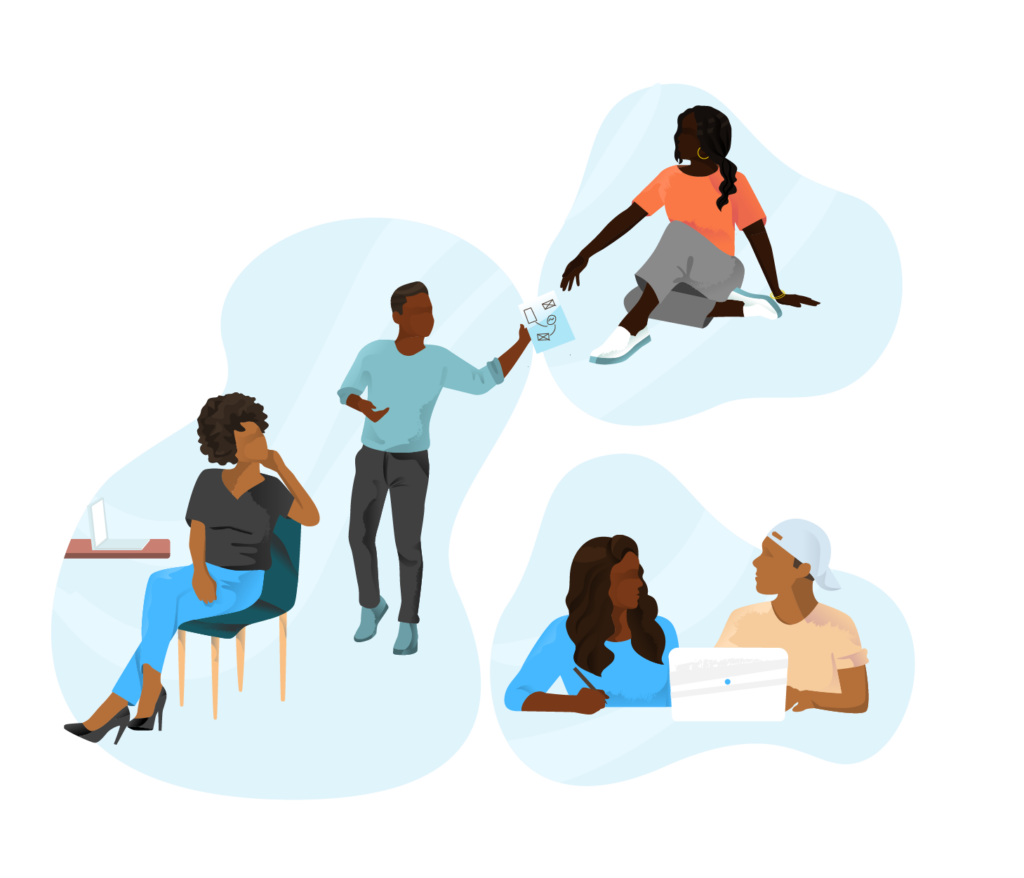Facing White Supremacy by Focusing on Power, People and Practice
By: Monisha Kapila, Kate Loving, and Ashlynn Polanco
Wednesday’s violent display of white supremacy in Washington D.C. is a reminder for us not to disassociate and challenge how it shows up within us and our workplaces on a daily basis.
Every day we experience compounding forms of racism through acts of violence, unchecked power, hypocrisy, and a lack of accountability that uphold white supremacy and it’s time to challenge our complacency by naming what it is and when it happens.
You must discuss this at work, particularly focusing on power, people and practice:
POWER: Condemn white supremacy and white power
We have to name it what it is, and also not see it as a problem outside of us. White people may dissociate and say, “I am not one of those people,” without evaluating our own complicity in how white supremacy shows up in day-to-day actions. Black, Indigenous, and people of color (BIPOC) can experience exhaustion and trauma from the harmful impacts of white supremacy, while having to explain to people that it exists.
| White supremacy we witnessed on January 6, 2021 | White supremacy that shows up everyday in the workplace | |
|---|---|---|
| Violence | Trump supporters attempting a coup in our nation’s Capital with few ramifications for their violence. | Harmful practices like microaggressions and white fragility without ramifications for their impact on people in the workplace, regardless of intent. |
| Unchecked Power | Police upholding power structures to keep white people in power. | Boards upholding power structures to keep white people in power. |
| Hypocrisy | Hypocrisy around what forms of protest are “allowed” for Black Lives Matter and the destruction we saw yesterday. | Hypocrisy between what leaders say around racial equity and their actions when it comes to supporting BIPOC in their organizations. |
| Accountability | A White President inciting violence for four years and not being held responsible or accountable. | Nonprofit and philanthropic leaders who uphold the status quo and maintain a culture of niceness versus accountability. |
PEOPLE: Create space for humanity at work

People are worth more than what they produce. To create space for the full humanity of people as we face traumatic experiences, work at each of these levels:
Active Learning and Unlearning
- Reflect on your own identities, where you hold power and marginalization. How does that impact the way you are experiencing this?
- Collaborate on decision making, particularly decisions that impact expectations for staff during such times, especially BIPOC folx within the organization. What meetings and timelines can be pushed to give space for people to just be?
Intentional Action
- Use clear and precise language as you communicate internally and externally. How can you push against forces of white supremacy and politeness and use “riot” instead of “domestic terrorism”, “protest” instead of “attempted coup”?
- Ask people what they need and co-create solutions to support them. What are ways the organization can care for your staff’s well-being, especially BIPOC folx who are personally experiencing trauma?
Processes for Accountability
- Ensure that conversations about white supremacy and race equity don’t happen only when we experience overt acts such as this. Are you holding your organization accountable to race equity commitments and statements you made this summer?
- We can’t train our way out of this. Build in processes to gather feedback and evaluate impact. Are you reimagining the work that is needed given the context we are in?
PRACTICE: Recognize that crises are a catalyst for change
This week we witnessed the striking results of leadership modeling white supremacy, but we also saw the results of leadership modeling race equity as Black women and communities of color organized a monumental victory in Georgia.

These results highlight the importance of leadership that centers race equity in their practice. During a crisis, we have an opportunity to take radical actions as leaders and organizations. Social sector organizations, particularly those that have been historically white-led, must use this moment to adopt practices that explicitly center race equity and will move us towards a world free of systemic oppression, that affirms the full humanity of us all.
For additional support, check out Crises as a Catalyst: A Call for Race Equity & Inclusive Leadership, a reflective tool and guide for advancing race equity and inclusion during crises.
